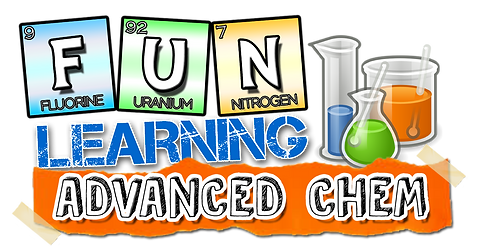



Redox reaction describes all chemical reactions in which there is a net change in atomic charge. It is any chemical reaction in which the oxidation numbers (oxidation states) of the atoms are changed is an oxidation-reduction reaction. Such reactions are also known as redox reactions, which is shorthand for reduction-oxidation reactions. Redox reactions can be thought of as a combination of two processes: oxidation, in which electrons are lost, and reduction, in which electrons are gained. The two processes cannot occur independently of each other. A mnemonic device used by chemists to help keep things straight is "LEO says 'GER,'" which stands for Loss of Electrons, Oxidation. Gain of Electrons, Reduction.
Not all redox reaction involves electron transfer for example the covalent bonding. It depends on the chemical reaction, oxidation and reduction may involve any of the following for a given atom, ion, or molecule.
Redox reaction includes:
-
Formation of a compound from its elements.
-
All combustion reactions
-
Reactions that generate electricity
-
Reaction that produce cellular energy.
IMPORTANCE OF REDOX REACTION:
Redox reactions are an important class of chemical reactions encountered in everyday processes. Some of these examples are rusting of an iron, batteries that produce electricity that we use in our daily lives and hydrocarbon fuels (such as wood, oil and coal) are burned to generate energy. Redox reaction can also be found in living organisms. Organisms use them to generate most of their energy for living. The electron transfer system in cells and oxidation of glucose in the human body is also a good example of redox reaction. Redox reactions can also be used to reduce ores to obtain metals, to produce electrochemical cells, to convert ammonia into nitric acid for fertilizers, and to coat compact discs.
TERMS IN REDOX REACTION:
-
Reduction – is a process in which a substance gains electron and is characterized by the decrease in oxidation number. (GEROA – Gaining Electron, Reduction, Oxidizing Agent)
-
Oxidation – is a process in which a substance looses electron and is characterized by the increase in oxidation number. (ELORA – Electron Loose, Oxidation, Reducing Agent)
-
Half Reaction - is either the oxidation or reduction reaction component. It is obtained by considering the change in oxidation states of individual substances involved in the redox reaction.
-
Oxidation State - often called the oxidation number, is an indicator of the degree of oxidation of an atom in a chemical compound. Oxidation states are typically represented by integers, which can be positive, negative, or zero.
-
Oxidizing Agent – substance that causes another substance to be oxidized or lose electrons. It is the substance reduced in the redox.
-
Reducing Agent – substance that is oxidized in the redox reaction.

